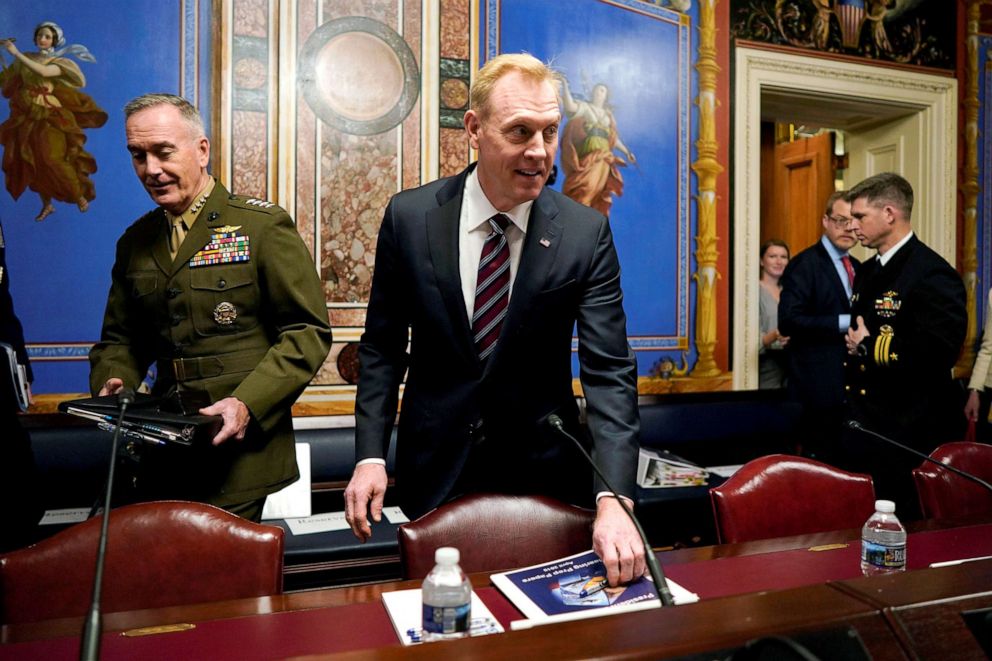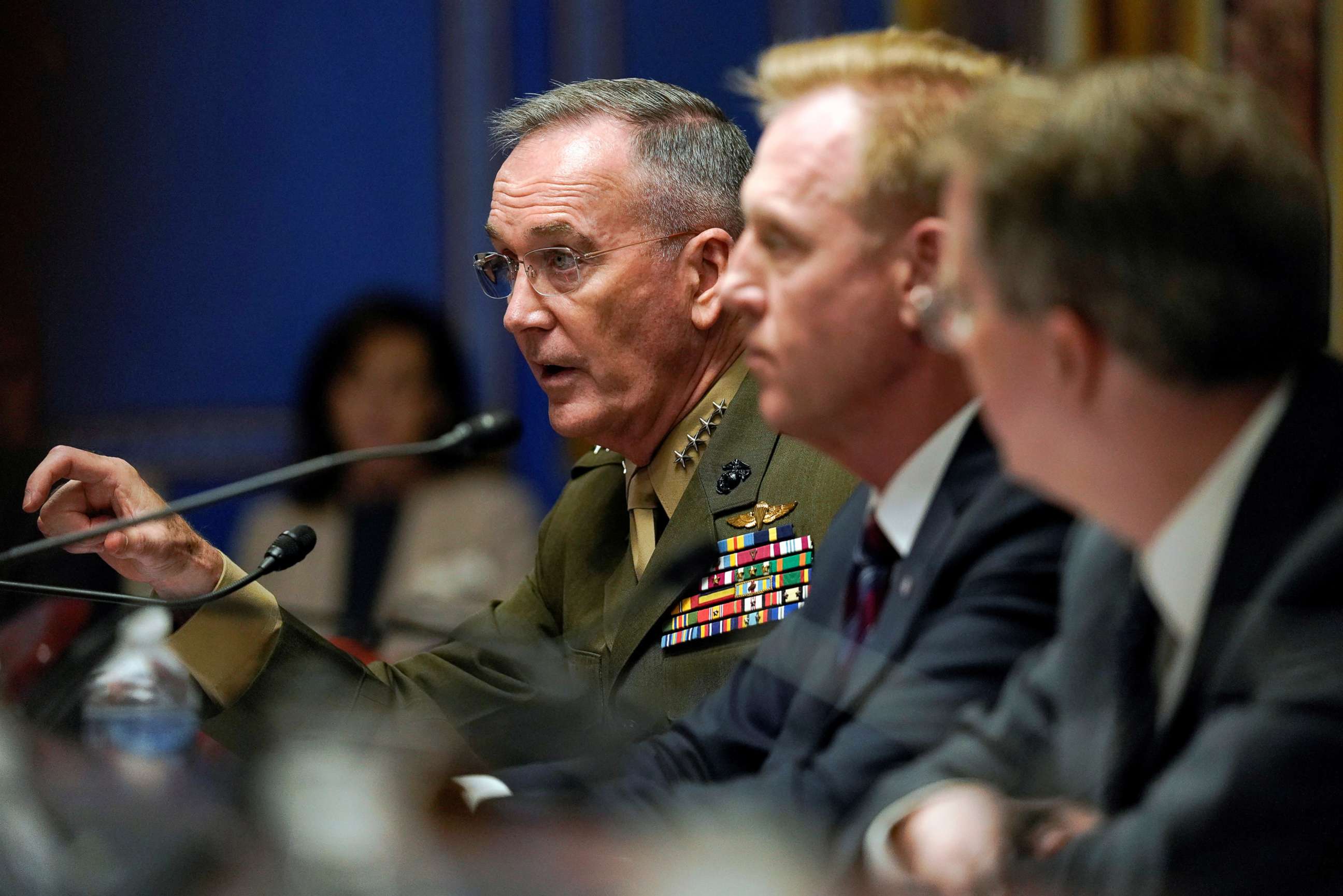Intelligence on Iran that prompted US carrier move came on Friday afternoon
The USS Abraham Lincoln carrier strike group is steaming towards the Middle East
The intelligence that Iran or its proxies were planning something against U.S. interests in the Middle East reached senior U.S. officials on Friday afternoon, acting Defense Secretary Patrick Shanahan told Congress on Wednesday.
Gen. Joseph Dunford, chairman of the Joint Chiefs of Staff, also said Wednesday that the deployment of the USS Abraham Lincoln Carrier Strike Group and a bomber task force was intended to deter Iran "so that there would be no ambiguity about our preparedness to respond to any threat against our people or our partners in the region."
The comments from the two senior defense officials were the first public comments about how new intelligence on Iran’s intentions led to a decision over the weekend to send the additional military forces to the Middle East to deter Iran.

Shanahan told the Senate Appropriations Defense subcommittee that last Friday, he and the rest of the national security team were focused on the situation in Venezuela.
Then, "we received indications of this very, very credible intelligence on Friday afternoon," he said.
"We went to work understanding the sources and to get the teams turning on "What does it mean? And how might we respond?" said Shanahan.
Dunford added, "We saw the intelligence so we sent some messages on Friday to make sure that it was clear to Iran that we recognized the threat and we were postured to respond to the threat."
ABC News has learned that the intelligence included indications that Iran or its proxies were planning attacks against U.S. forces in Iraq, Syria and at sea.
There was also intelligence that Iran was possibly transporting missiles on Iranian boats in the Persian Gulf, according to a U.S. official. It was unclear, the official said, what the purpose was for the missiles being on the Iranian boats and that it was possible they could be fired from the Iranian boats or were being transported elsewhere.

On Friday night, with the new Iran intelligence catching the attention of senior U.S. policy makers, another world crisis emerged as North Korea fired projectiles into the Sea of Japan.
Shahanan told the senators Wednesday that he was in the middle of a nighttime run when, "Gen. Dunford called me and up said North Korea was now shooting rockets and missiles."
On Saturday, he, Dunford and Gen. Kenneth McKenzie, the head of U.S. Central Command, reviewed the intelligence and potential U.S. military responses.
"And it was really Sunday afternoon that he came back and said ‘This is what we’re recommending. I need authority to proceed,’" Shanahan said.
Dunford explained that he wanted "to accelerate" the Lincoln’s eventual arrival to the Middle East, as well as the deployment of a bomber task force, "so that there would be no ambiguity about our preparedness to respond to any threat against our people or our partners in the region."
"We wanted to make sure we took as much action as we could over the weekend to actually deter that," Dunford said.
Shanahan said it was not until Sunday night -- in coordination with the State Department and the National Security Council -- "before any real information was put together."
The White House later released a statement from John Bolton, the national security adviser, announcing the deployment of the USS Abraham Lincoln Strike Group and a bomber task force.
The Lincoln is steaming towards the Middle East from the Mediterranean and could soon arrive in the region.
At least four B-52’s, based at Barksdale Air Force Base in Louisiana, took off Wednesday for Qatar. They will be stationed there as part of the last-minute deployment prompted by the new threat intelligence from Iran.




